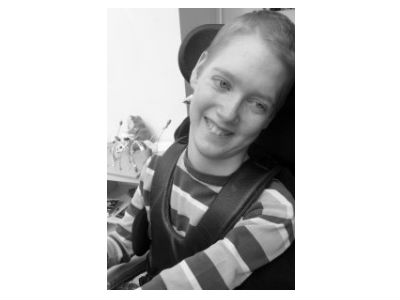
The death of a learning disabled man at a supported living unit could possibly have been prevented if he had been checked on more regularly, a coroner has said.
Nico Reed was found dead at the Barrantynes supported living service in Chalgrove, Oxfordshire, in August 2012. The 23-year-old had cerebral palsy and severe learning disabilities.
The coroner’s narrative conclusion said that Nico had died after inhaling his own vomit. The coroner concluded that there was a period of between 45 minutes and an hour before Nico was found unresponsive and not breathing.
Learning disability charity Mencap, which has been supporting Nico Reed’s family and attended the inquest, say Nico’s care plan recommended that he should be checked on every 20 minutes.
‘Risk assessment would have been preferable’
According to reports, coroner Darren Salter, recording a narrative verdict at the inquest, said there was no risk assessment in place to deal with the risk of Nico’s vomiting and that would have been preferable.
At the time of Nico’s death, the supported living service was run by Ridgeway Partnership. The service is currently run by Southern Health NHS Trust, which acquired Ridgeway Partnership in November 2012.
Southern Health said it was confident Nico’s needs were assessed and met effectively.
Phil Aubrey-Harris, the trust’s divisional director for social care, said: “Nico had complex health and social care needs which we are confident were assessed and met in the most effective way possible.”
“We have reviewed our processes and conducted an internal investigation since the incident, and though we do not believe we could have changed the outcome that day, we are committed to learning from any incident such as this, and from the coroner’s comments.”
He added: “Nico was a popular resident at Barrantynes, and he is fondly remembered by the many staff who cared for him. We accept the coroner’s findings, and the opportunity to examine the circumstances surrounding Nico’s death.”
Calls for independent investigation
Nico’s parents and Mencap are calling for an independent investigation into Nico’s death.
Rosi Reed, Nico’s mother, said: “We have fought for two years to get justice for Nico and today’s judgement goes some way towards this. There is no doubt in our minds that Nico would still be here today had he not been forced to go somewhere that couldn’t support even his most basic needs.”
She added: “Nothing will bring our son back. No legal verdict will change what has happened to us or calm our grief. But it might prevent it happening again and that is why we fight on. This is not the end – it is just the end of the beginning.”
The case is the second high-profile death of a learning disabled man in Oxfordshire in recent times. 18-year-old Connor Sparrowhawk died in July 2013 after being submerged in a bath following an epileptic seizure at a short-term assessment and treatment unit run by Southern Health. In February of this year, an inquiry found that the death was preventable and followed significant failings in Connor’s care. His death led to the creation of a grassroots campaign to improve care for disabled people.
Note: This article was amended on 15 December to clarify the fact that Southern Health did not run the Barrantynes supported living service at the time of Nico Reed’s death in August 2012. Southern Health took on responsibility for the service in November 2012.


 A trauma-informed approach to social work: practice tips
A trauma-informed approach to social work: practice tips  Problem gambling: how to recognise the warning signs
Problem gambling: how to recognise the warning signs 




 Find out how to develop your emotional resilience with our free downloadable guide
Find out how to develop your emotional resilience with our free downloadable guide  Develop your social work career with Community Care’s Careers and Training Guide
Develop your social work career with Community Care’s Careers and Training Guide  ‘Dear Sajid Javid: please end the inappropriate detention of autistic people and those with learning disabilities’
‘Dear Sajid Javid: please end the inappropriate detention of autistic people and those with learning disabilities’ Ofsted calls for power to scrutinise children’s home groups
Ofsted calls for power to scrutinise children’s home groups Seven in eight commissioners paying below ‘minimum rate for home care’
Seven in eight commissioners paying below ‘minimum rate for home care’
 Facebook
Facebook X
X LinkedIn
LinkedIn Instagram
Instagram
According to reports, coroner Darren Salter, recording a narrative verdict at the inquest, said there was no risk assessment in place to deal with the risk of Nico’s vomiting and that would have been preferable.
Southern Health said it was confident Nico’s needs were assessed and met effectively. ‘ …we do not believe we could have changed the outcome that day.’ We accept the coroner’s findings…’
Really Southern Health cannot have it both ways – either accept Nico was not treated correctly and say sorry or seek to have the coroner’s verdict overturned. When these tragedies occur it is obscene how those with the duty of care wriggle out of their responsibilities.